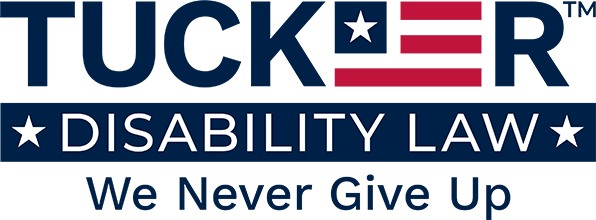Stand Tall Against VA Denials for Agent Orange Claims. As a Veteran, You Deserve Justice. Let Us Help You Secure the Benefits You’ve
Earned.
Get a FREE Agent Orange Claim Evaluation
At Tucker Disability Law, we recognize the profound and lasting impact Agent Orange exposure has on you and your family.
Our mission is to secure the disability benefits you deserve. We are here to provide compassionate and expert legal representation, guiding you through the VA claims process to ensure your service and sacrifice are honored with the support and care you need.
Tucker Disability Law’s expert team of VA disability attorneys specialize in winning Agent Orange exposure cases at the Regional Office level, getting results in a fraction of the time it takes those other law firms. That means you get your money faster.
No Upfront Fees
We earn your trust through results. That’s why we offer free consultations and work on a contingency fee basis – we don’t get paid until you do.
Here’s How to Get Your Agent Orange VA Benefits Approved and Start Receiving VA Benefits Now
#1 Stop trying to handle your VA claim on your own
Going through it alone means you might miss important steps and deadlines. The VA system is a purposeful government maze that can leave you feeling frustrated and overwhelmed.
#2 Trust Tucker Disability Law instead
We understand veterans’ unique challenges, and we’re here to help. With a 98% success rate, our VA Denied Claim team knows how to present your case, gather the right evidence, and fight like hell for the benefits you deserve.
#3 Retain Us to Fast Track Your VA Benefits for Agent Orange
We know that waiting years to get your case approved isn’t an option. Most veterans appeal directly to the Board, facing an average wait time of 3-4 years.
At Tucker Disability Law, our expert VA disability appeal lawyers win more cases at the Regional Office level than those other VA disability law firms. This means we deliver results in a fraction of the time and get you your money faster.
Don’t let the system break you down—Here’s how we help:
Take Action Now
Get a FREE Agent Orange Claim Evaluation
Understanding Agent Orange and VA Disability Presumptive Conditions
Throughout the Vietnam Era, the military sprayed millions of gallons of herbicides on trees and vegetation that provided cover for enemy forces. This herbicide is known as Agent Orange. It got its name from the orange stripe found on the storage containers.
At different times, other chemicals were used – Agent Pink, Agent Green, etc. – but they all came to be known by the catch-all “Agent Orange” and had one chemical in common: Dioxin.
Unfortunately, exposure to Dioxin is toxic and is now connected with certain medical conditions and disabilities. Veterans who were exposed to these chemicals may be eligible for Agent Orange disability compensation.
Who Is Eligible to File An Agent Orange VA Disability Claim?
To qualify for VA disability benefits based on exposure to Agent Orange, you must meet the following criteria:
- You served in an area where you were exposed to Agent Orange
- You have a health condition that is caused by exposure to Agent Orange
If you served in an area that exposed you to Agent Orange, this is called a Presumption of Exposure–in other words, the VA assumes, since you were there, you were exposed to this dangerous toxin.
The recent passing of The PACT Act has expanded the areas of presumed exposure.
Agent Orange Presumed Areas of Exposure include:
Vietnam Veterans
If you served in the Republic of Vietnam between January 9, 1962, and May 7, 1975, and were exposed to Agent Orange, you may be eligible to file a claim. This includes those who:
- Served on the ground in Vietnam.
- Served on inland waterways (also known as “Brown Water” Veterans).
- Served offshore but can show they were exposed to Agent Orange (also known as “Blue Water” Veterans, who have specific qualifying criteria).
Korean DMZ Veterans
Veterans who served in or near the Korean Demilitarized Zone (DMZ) between September 1, 1967, and August 31, 1971, may also be eligible if they were exposed to Agent Orange.
Thailand Military Bases
Veterans who served on or near the perimeters of military bases in Thailand during the Vietnam era, from January 9, 1962, to June 30, 1976, may qualify for Agent Orange exposure claims.
Specific Ships and Units:
- Laos from December 1, 1965, through September 30, 1969
- Cambodia at Mimot or Krek, Kampong Cham Province from April 16, 1969, through April 30, 1969
- Guam or Samoa or in the territorial waters off Guam or American Samoa from January 9, 1962, through July 31, 1980
- Johnston Atoll or on a ship that called at Johnston Atoll from January 1, 1972, through September 30, 1977
Exposure Through Transportation or Reserve Duty:
In addition to those areas above, the VA assumes that you were exposed to Agent Orange if:
- You served on active duty in a regular Air Force unit location where a C-123 aircraft with traces of Agent Orange was assigned, and had repeated contact with this aircraft due to your flight, ground, or medical duties
- You were involved in transporting, testing, storing, or other uses of Agent Orange during your military service
- You were assigned as a Reservist to certain flight, ground, or medical crew duties at one of the locations listed below:
Lockbourne/Rickenbacker Air Force Base in Ohio, 1969 to 1986 (906th and 907th Tactical Air Groups or 355th and 356th Tactical Airlift Squadrons)
Westover Air Force Base in Massachusetts, 1972 to 1982 (731st Tactical Air Squadron and 74th Aeromedical Evacuation Squadron, or 901st Organizational Maintenance Squadron)
Pittsburgh International Airport in Pennsylvania, 1972 to 1982 (758th Airlift Squadron)
Children of Veterans with Birth Defects
Biological children of Vietnam-era Veterans with qualifying service in Vietnam or Korea who have certain birth defects linked to Agent Orange exposure may also be eligible for benefits. Click here to read more about what birth defects might be linked to Agent Orange.
Get a FREE Agent Orange Claim Evaluation
Diseases Caused by Agent Orange Exposure
The United States Department of Veterans Affairs (VA) acknowledges that certain health conditions (listed below) are linked to Agent Orange exposure.
The VA assumes that certain diseases can be related to a Veteran’s qualifying military service. We call these “presumptive diseases.”
If you have one of these conditions and can show you were exposed to Agent Orange, the VA automatically considers it related to your service. This means you don’t need to prove that your military service caused the condition—the law assumes it did.
The following is a list of presumptive diseases associated with exposure to Agent Orange or other herbicides during military service.
Based on the PACT Act, the VA has recently added two new Agent Orange presumptive diseases: Hypertension and MGUS (Monoclonal Gammopathy of Undetermined Significance).
Veterans and their survivors may be eligible for benefits for these diseases:
AL Amyloidosis: A rare disease caused when an abnormal protein, amyloid, enters tissues or organs.
Bladder Cancer: A type of cancer that affects the bladder where urine is stored.
Chronic B-cell Leukemias: A type of cancer which affects white blood cells, including all chronic B-cell leukemias like hairy-cell leukemia and chronic lymphocytic leukemia.
Chloracne (or similar acneform disease): A skin condition that occurs soon after exposure to chemicals and looks like common forms of acne seen in teenagers.
Diabetes Mellitus Type 2: A disease characterized by high blood sugar levels resulting from the body’s inability to respond properly to the hormone insulin.
Hodgkin’s Disease: A malignant lymphoma characterized by progressive enlargement of the lymph nodes, liver, and spleen and progressive anemia.
Hypertension is Commonly known as High Blood Pressure.
Hypothyroidism: A condition that causes the thyroid gland to not produce enough important hormones.
Ischemic Heart Disease: A disease characterized by a reduced supply of blood to the heart, leading to chest pain.
Monoclonal Gammopathy of Undetermined Significance (MGUS): A condition where an abnormal protein is in the blood, potentially leading to multiple myeloma.
Multiple Myeloma: A cancer of plasma cells, a type of white blood cell in bone marrow.
Non-Hodgkin’s Lymphoma: A group of cancers that affect the lymph glands and other lymphatic tissue.
Parkinsonism: Any condition that causes a combination of abnormal movements like slow movements, trouble speaking, stiff muscles, or tremors.
Parkinson’s Disease: A progressive disorder of the nervous system that affects muscle movement.
Peripheral Neuropathy, Early-Onset: A nervous system condition causing numbness, tingling, and motor weakness, must be at least 10 percent disabling within one year of herbicide exposure.
Porphyria Cutanea Tarda: A disorder characterized by liver dysfunction and thinning and blistering of the skin in sun-exposed areas, must be at least 10 percent disabling within one year of exposure.
Prostate Cancer: Cancer of the prostate, one of the most common cancers among men.
Respiratory Cancers (includes lung cancer): Cancers of the lung, larynx, trachea, and bronchus.
Soft Tissue Sarcomas: A group of different types of cancers in body tissues such as muscle, fat, blood and lymph vessels, and connective tissues.
If you have an illness not listed as a presumptive condition but believe it was caused by Agent Orange exposure, you can still file a claim for VA disability benefits and we can help.
How Much Money Can You Get Monthly from VA Disability Benefits?
The amount of money you may be entitled to receive will depend upon the rating given to you by the VA.
The rating is a percentage measured by the severity of your service-connected condition. In other words, the more severe your condition, the higher your rating. If you have multiple conditions, the VA uses a special formula to combine them into one overall rating.
Here’s a general breakdown of what you might expect:
These figures can increase if you have dependents or if your condition worsens over time. For more information, go to our VA Disability Compensation Page.
A higher rating not only means more financial support each month, it can also qualify you for additional benefits, such as increased access to VA healthcare services, vocational training and housing assistance.
Don’t Wait Another Day To Get Your Benefits
Understanding and navigating the VA disability claims process can be overwhelming.
Let our experienced team help you get the benefits you deserve.
We specialize in handling Agent Orange-related cases faster than those other VA disability firms and are dedicated to fighting for your rights.
Fast Track Your Agent Orange Claim Now














